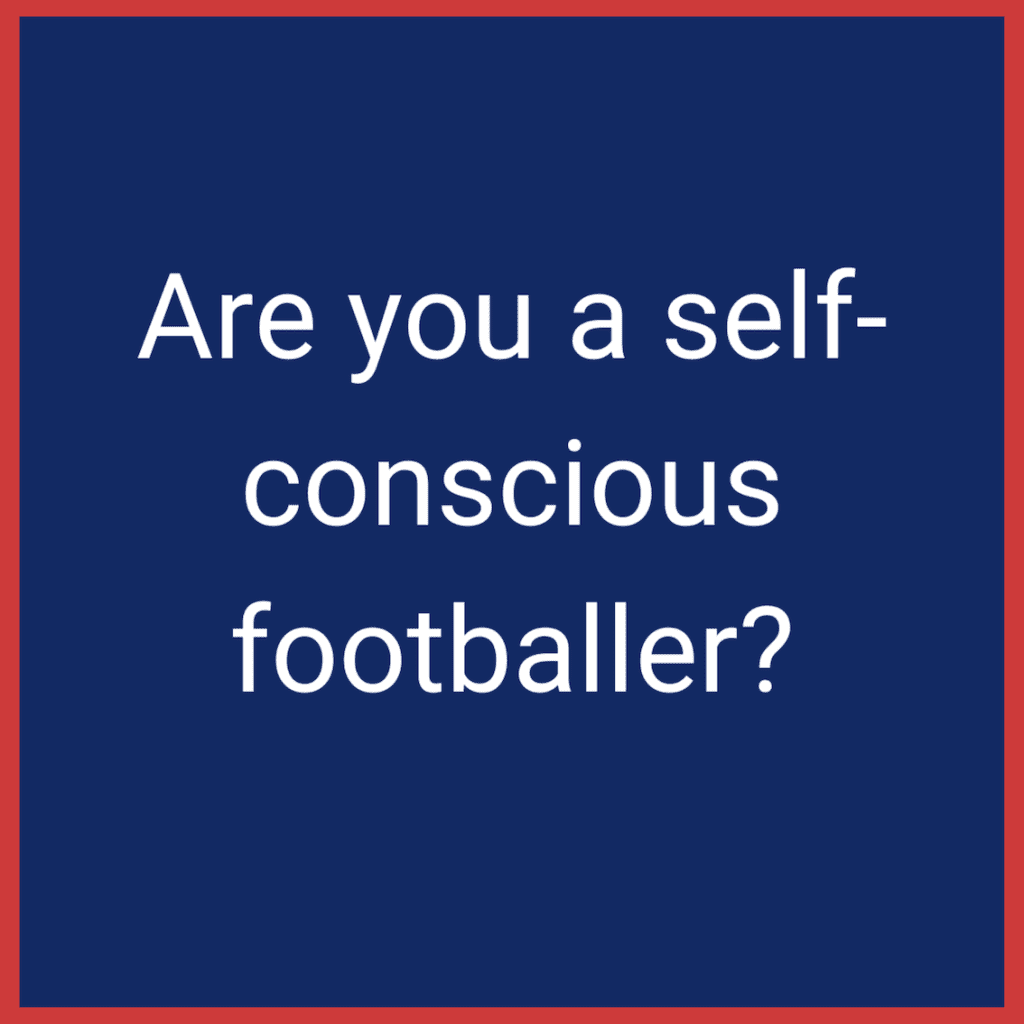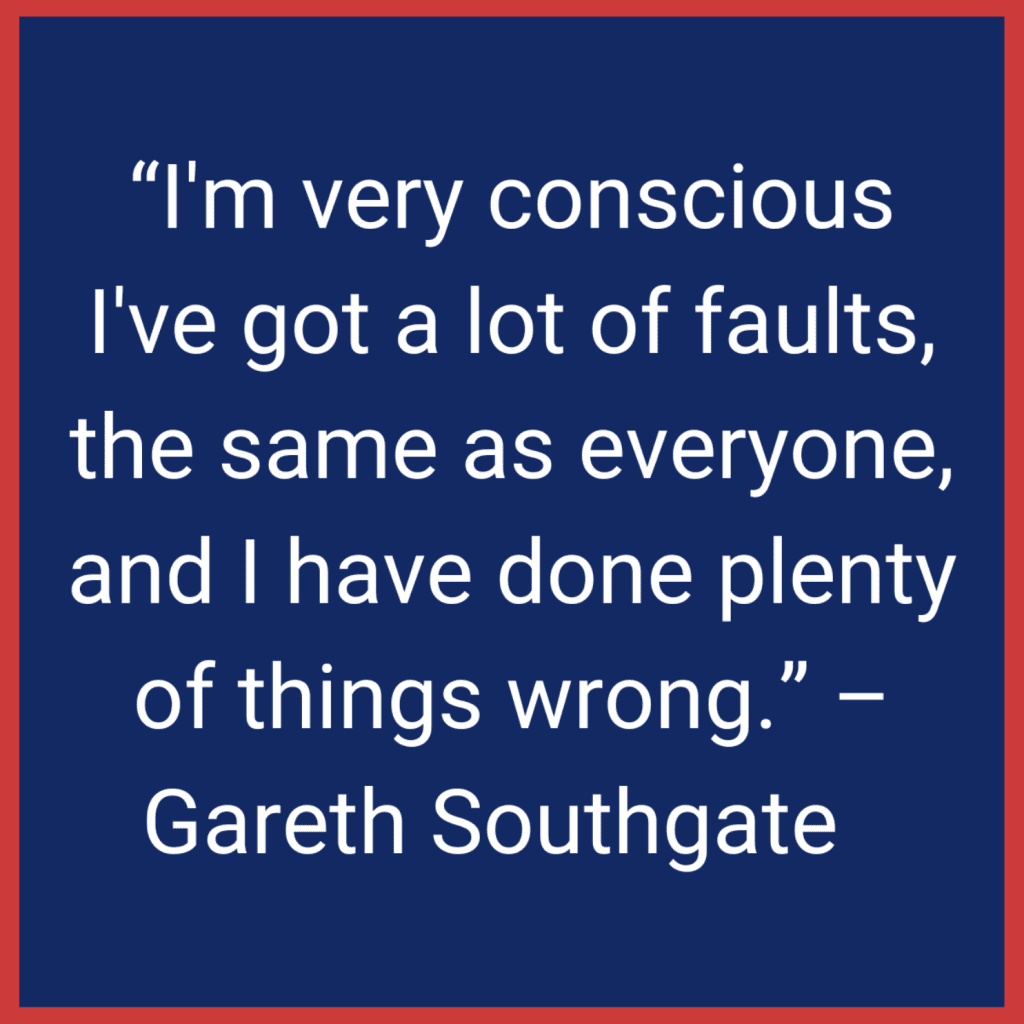21 February 2023

Developing The X-FACTOR To Transform Your Football Performances
Can You Lose Your Composure On The Football Pitch?
Today’s X-FACTOR is designed to challenge your thinking so that you can up your game when the pressure is on. When you play football or soccer I’m pretty sure you will have come across critical scenario’s in matches which decide whether you and your team win or lose matches.
In the blink of an eye these moments are over too – here’s an example:
However, how many times do you see footballers in these situations fail to execute as they would hope. Where their normal timing goes out of the window, where they “think too much”, where they over-analyse or concentrate on the wrong things?
How can we help them?
One approach is to improve your self-awareness by considering what composure actually is in football or soccer.
Here are two examples:
- Take the penalty taker, who has an opportunity to win the game in the last minute. With the opponents clearly aggrieved as the referee awarded a very soft and contentious penalty. Composure is then the ability to think calmly and clearly putting the outside noise, verbals and distractions to one side.
- Perhaps you’re the centre forward who has played poorly for 80 minutes, failed to get into the game, and when you have had opportunities to score you haven’t taken them. Yet the game is still in the balance with 10 minutes remaining. In this situation, composure is the ability to react calmly when your chance comes, maintaining a bigger picture perspective about your missed chances.
What other things do we notice about football or soccer players who play with composure?
Psychological
- Patience is a skill that composed footballers have when things go wrong.
- A challenge mindset is in the make up of a composed footballer, who will not catastrophize situations possessing a “can do” attitude.
- The composed footballer has a way of getting the job done and doesn’t worry about how.
- Mistakes are accepted as part of the game and this player is quick to regroup and refocus.
- Remaining neutral, not letting their emotions run away with them is part of the make up of a composed footballer.
- You’ll find the calm composed footballer often finishes matches strongly.
- Many composed footballers can be trusted my managers and coaches rarely performing less than a 7/10.
Physically:
- In their eyes you may see a look of focus and concentration.
- The composed footballers body language is often positive, where their head is up, chest is out and shoulders are back.
- Their body is relaxed, with little tension in their core or legs aiding their first touch.
- Footballers who play with composure often walk or run with look of confidence and to some people, arrogance.
- Time often slows down for the composed football or soccer player. Where they make complex skills very simple despite pressure.
- When opponents try to get the better of the composed footballer they are unruffled, you may see them response with a quite stare or smile.
- Their physical presence and psychological prowess can intimidate some opponents.
As well as simply being aware of these characteristics, if you’re a player who struggles with specific aspects that I’ve detailed above I’d recommend you try imagery.
For instance, if we look at the physical side, why not be very professional about your mental approach before your next match and don’t simply leave things to chance. Every night, for a one week ahead of your next match, spend 10 minutes lying on your bed before you go to sleep. With your eyes closed, imagining that you have your boots and kit on, playing the match in your head whilst seeing yourself with that steely look of focus and concentration. With positive body language. With a relaxed feel in your body and so on…
Imagery is a great way for footballers to improve their mental game especially if you make the movie in your head as real as possible bringing in all of your senses to the fore. With vivid images of yourself and others, sounds that you hear on the pitch and the feel of your body as it moves.
You may also want to explore the following to aid your composure and decision making by:
Listening to this week’s Demystifying Mental Toughness Podcast! Despite it focusing on golf and is not football or soccer specific it is relevant for all sports. Where Dr Brian Hemmings shares with you a very helpful and solution-based approach that can make sure that you don’t fall into this trap of indecision, lack of trust or overthinking when he talks about quiet eye training.
WORD OF THE DAY
Overthinking
Overthinking on the football pitch is going over the same thought again and again, analysing a situation that you’ve experienced until you find you’ve got it out of proportion. What happens next are feelings of stress and anxiety, negative images in your mind and a football brain that cannot play off instinct. A task for you learn when you get past or future orientated. For example, if you spend too much time in the past you’ll likely replay many things that have happened in a match. Whereas if it is the future which you struggle with you’ll likely be someone who gets sucked into predicting what is going to happen ahead of time. Aim for the present instead!
CHECK US OUT ON INSTAGRAM WHERE YOU’LL FIND IMAGES AND POSTS LIKE THIS

⚽️ Many footballers are self-conscious on the pitch and retreat into their shells.
How can players overcome this?
- Try positive self-talk.
- Allow yourself 2-3 mistakes in a match.
- Appreciate your A game doesn’t come out very often.
- Recognise the best players in the world fail with their attempts more than they succeed.
- Use sports psychology tools to boost your levels of resilience.
TO DO LIST:
WATCH – Composure on the ball and Maintaining Possession – Gary Rowett, The Coaching Manual
LISTEN – Ep209 – Felix Lehmann: How To Create Better Decision Makers On The Football Pitch
READ – Perception, Cognition, and Decision Training: The Quiet Eye in Action – Joan Vickers
FACT – When taking a penalty at a crucial time in a match players will feel different symptoms (cognitive or somatic) which can affect performance and depends on how the footballer perceives the situation. Is it a challenge or a threat? Examples of Cognitive anxiety include (e.g., worry – “I hope I don’t….” or panic – “I want this over….”). Whereas somatic anxiety in the body (e.g., increases in heart rate, respiration and muscle tension) can occur for some players.
TIP – Identify some pressure situations on the pitch that you have recently performed below your best. Did you see these situations as a challenge or as a threat? Consider if you did see them as a challenge how your thoughts, emotions and actions would differ.
QUOTE – “The best decisions aren’t made with your mind, but with your instinct.” – Lionel Messi

THOUGHTS – When you train it is important to have a certain mindset, a mindset that sets you up to improve your game so that you keep getting better. In effect, a mindset that sets you up for your future matches. However, a matchday mindset is very different, at least when your “A Game” comes out. Where much like Messi you let your instincts take over. You rely on your training, trust your mind and body to do what it needs to do. This way you’re more likely to react to situations and perform freely.
Many footballers really struggle with this concept, and get stuck in a training mentality in matches where trying too hard to please coaches, paralysis by analysis and a focus on the perfect performance takes over.
SHARE THE X-FACTOR
Share The X-FACTOR with your friends, family and colleagues, and create a positive difference to the lives of more football players, coaches, parents and enthusiasts.

Best Wishes
David Charlton
Online Sports Psychologist | Mental Performance Coach who supports many highly motivated athletes, young and old, developing their skills or who are already highly skilled so that they gain a mental edge and get the most from their talent across the globe from USA/Canada to Great Britain and Ireland to UAE, South Africa, Australia and New Zealand, using ONLINE Video Conferencing.
Managing Director – Inspiring Sporting Excellence
Host of Demystifying Mental Toughness Podcast
Founder of The Sports Psychology Hub
Author of The Mental Edge
With over a decades’ experience supporting athletes, coaches, parents and teams to transfer their skills from training to competitive situations, under pressure.
T: +44 7734 697769







